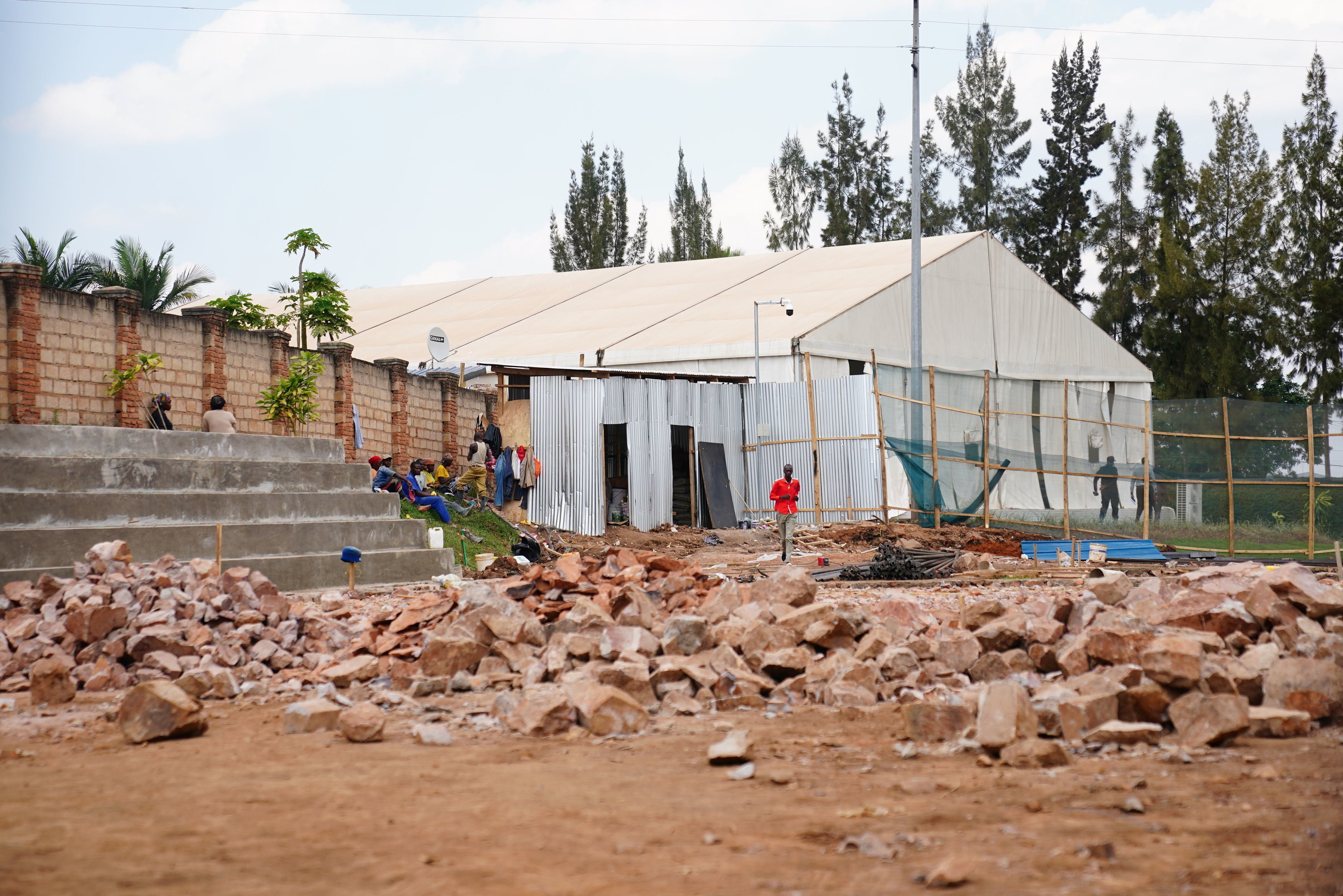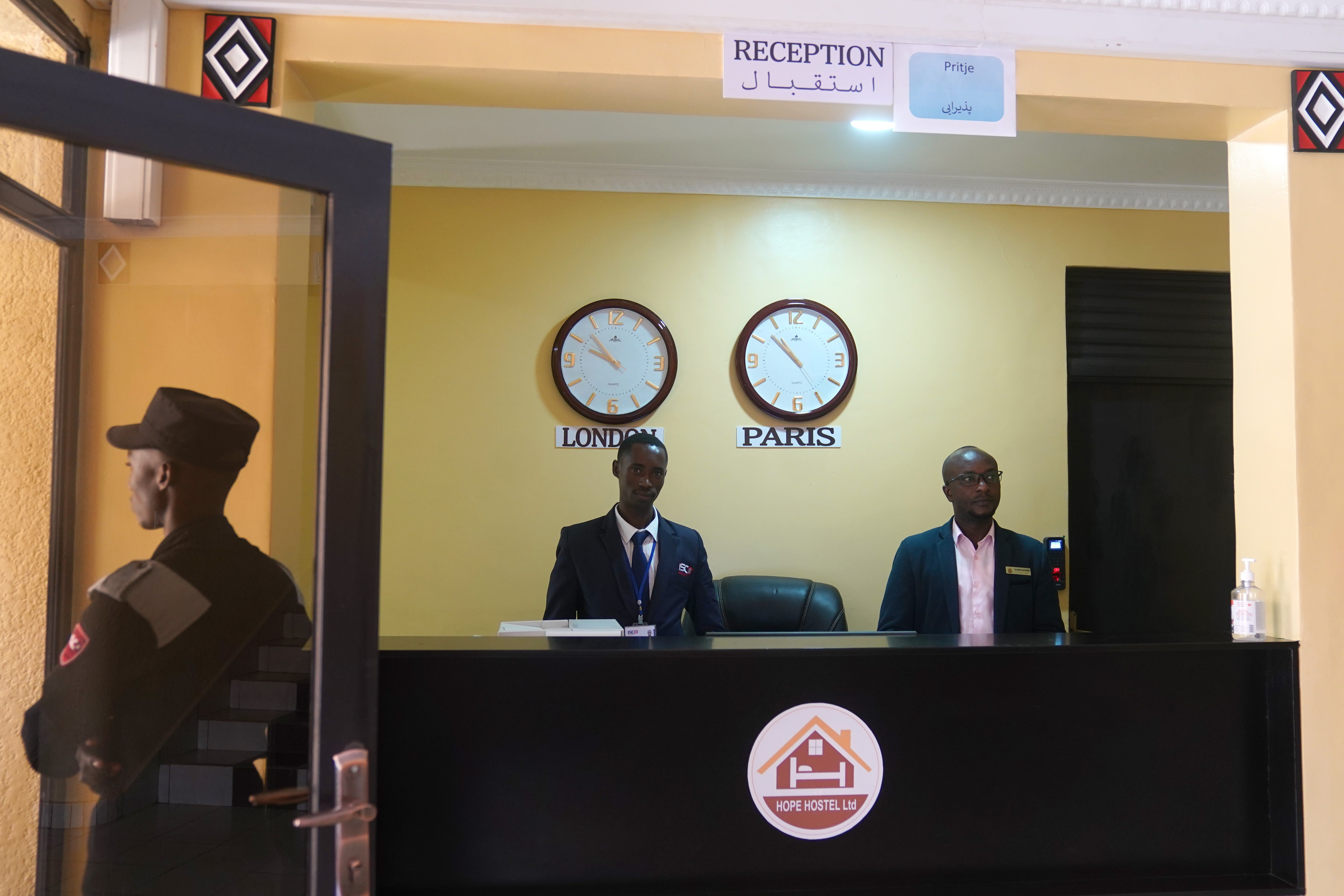Rwanda cannot stop migrants leaving and attempting fresh journeys to UK
Rwandan officials say being sent to the country is a ‘good option’ and migrants will be supported to stay

Rwandan authorities will not be able to stop migrants leaving the country and attempting new journeys back to the UK, officials have admitted.
Speaking to a press conference on Friday, Rwanda’s lead legal negotiator on the partnership said it was “not a prison state”.
Doris Uwicyeza Picard, chief adviser to the country’s justice ministry, said: “Everybody who wishes to leave can leave.
“We also have mechanisms in place to ensure safe relocation to their country of origin or any other country where they would have a right to residence.”
Rwanda will not be facilitating journeys back to the UK, and will only offer those to other nations where migrants have the right to enter or reside.
The home secretary, Priti Patel, has told parliament that the aim of the programme is to remove “inadmissible” asylum seekers who cross the English Channel in small boats and other dangerous means in order to deter the journeys and “break up these smuggling gangs”.
There is no evidence of the deterrent effect, however, and asylum seekers who were previously sent to Rwanda by Israel told of how they left and rejoined smuggling routes to Europe.
Ms Picard said the UK agreement was “completely different” from the one later ruled unlawful by Israel’s supreme court.
She told the press conference that everyone sent from the UK will be given the opportunity to apply for asylum, and those who choose not to or do not succeed will be given a different type of legal residence.
All those under the partnership would get support, including housing, language courses, education and vocational training, she added.
Yolande Makolo, a spokesperson for the Rwandan government, acknowledged that the British government viewed the threat of being sent to the country as a “deterrent”.
But she added: “For us, the option of coming to Rwanda is a good one for people who are looking for safety because we will provide that. Additionally, they get a legal pathway to stay here, whether or not they are refugees.”

Ms Makolo said Rwandan officials “do not consider living in Rwanda a punishment or something bad, I don’t see why anyone would.
“People have their own reasons for going to different places,” she added.
“Part of the reason people think they should be living in Europe or richer countries is that they think the streets are paved with gold and part of the reason is this narrative which is cast by different media that Africa is basically a hellhole, it’s presented as a terrible place to live, which isn’t true.”
The scheme was announced by Patel in April but has been delayed by a series of legal challenges that will not be resolved until October at the earliest.
Documents disclosed by the British government as part of an ongoing High Court case showed that both the Foreign Office and UK High Commissioner to Rwanda advised against the deal, and that the country was “initially excluded from the shortlist of potential partner countries for the proposed immigration policy on human rights grounds”.
The reasons given included that it “has been accused of recruiting refugees to conduct armed operations in neighbouring countries”, has a “poor human rights record regardless of the conventions it has signed up to” and has been criticised by the UK for extrajudicial killings, deaths in custody, enforced disappearances, torture and crackdowns on anyone critical of the regime.
Official government guidance, which was published after the deal was announced in April, found Rwanda to be a safe country but the claimants revealed that the Rwandan government itself had been sent a draft to review and asked for edits.
When asked about the internal warnings revealed by the court case, Ms Makolo said they were “based on wrong information”.
“It is wrong to accuse us of that sort of thing, what we do is offer people a home and safety here, we do not get involved in recruitment for whatever armed movements,” she told the press conference.
“That is incorrect information and it’s basically incorrect information and we want to challenge that because it’s not true.”
She said that legal challenges were expected and Rwanda expects the UK government “to do what needs to be done to overcome this challenge”.
“On our side, we remain ready to receive the migrants, we are using this time to prepare and we’re confident that it will go ahead,” Ms Makolo added.
“We will work with our partners in the UK government to make sure this partnership benefits the migrants and we are able to give them a home here and help them take care of themselves, and also use the partnership to advance our development programme for the benefit of Rwandans and anyone else who comes to live here with us.”
Officials said Rwanda had already received the £120m upfront payment from the UK, but would not disclose the individual costs that will be charged for each migrant received.
The British government previously refused freedom of information requests by The Independent asking for information on future payments.
A series of reports released in recent days have heavily criticised the Home Office’s response to record small boat crossings over the English Channel.
Parliament’s Home Affairs Committee said ministers must stop trying to find “magical solutions” like the Rwanda deal, and fix internal problems such as a huge backlog of asylum claims rather than seeking “eye-catching headlines”.
The Home Office declined to respond to the Rwandan officials' comments, or the possiblity of relocated people journeying back to the UK, but said: “There is no one silver bullet to stop the increase in the dangerous small boat arrivals that is pressurising our asylum system.
“Our New Plan for Immigration will fix the broken asylum system, allowing us to support those in genuine need while preventing abuse and deterring illegal entry to the UK.”






Join our commenting forum
Join thought-provoking conversations, follow other Independent readers and see their replies
Comments